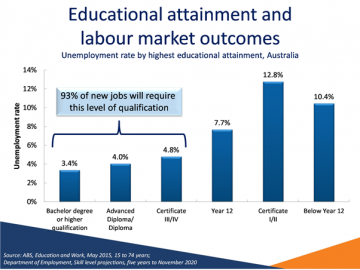July 26, 2021 / IHNA

7 KEY CONSIDERATIONS IN MAKING CAREER CHOICE AND DECISION
By Mahima Tamang Shrestha – Co-founder & Director PurpleTree PR
Making career decisions and choices provides the necessary direction. If you are trying to decide on a career path, always consider your personality, preferred lifestyle, utilization of skills, pay, working conditions, commute, future growth opportunities, working environment, wants, needs, leadership opportunities, insurance and training facilities. Also, seek help from Career advisors and can also consider the option of changing your field if needed.
Education plays a crucial role in helping you to get a job. According to the Department of Employment Australia, 93% of the new jobs require Higher qualifications, Advanced Diplomas and Certificates. Here are a few considerations that are paramount while making a career choice and decision.

1. PLAN
Determine the career options: Self-assessment helps to narrow down employment alternatives by assessing your interests, abilities, and beliefs. According to the Department of Employment Australia, only 7% of jobs are available for people with low-skilled education. People with medium-skilled qualifications get 29% of the jobs, while 64% are highly qualified individuals.
Prioritize: Prioritize your options depending on your top skills, interests, pros, and cons.
Make Comparisons: Analyze your most viable job opportunity in light of your most vital talents, hobbies, and values.
Consider Other Factors: Always consider factors beyond personal preferences like the field’s demand, scope, required qualifications, additional training, effect on life, potential outcomes, and barriers of the area.
Make a choice: Choose the best suitable career for you depending on your situation and level of comfort.
Set Goals: Create an action plan to carry out your decision. Determine clear, attainable, and time-bound goals and steps to carry out your plan. Write down clear action steps to attain your goals.
Meet with a Career Advisor: Seek help from career consultants to overview market demands and job opportunities.
Career planning is to put the plans into action through effective career management methods. Individuals require skills, abilities, and values to execute their professional goals using suitable career management strategies after they have planned their career goals. Career management is a continuous process of planning, implementing, and monitoring career goals and strategies, which can be done alone or in conjunction with the organization’s career system. (Hall & Associates 1986, Greenhaus, et al. 2000).

2. PREPARE
When preparing for and deciding on your dream career, make the most of your abilities. Learn from your mistakes and don’t repeat them. Talk to a professional consultant or experienced people around you to gather more information about your selected career. Consider the work environment and do what you enjoy doing.
According to the Department of Employment’s Survey of Employers’ Recruitment Experiences, 2016, good communication skills, moral conduct, good people skills, relevant experience, qualification, technical knowledge, and an enthusiastic approach are essential.

3. BE INTERVIEW READY
To prepare yourself for an interview, take out time to thoughtfully consider your goals and qualifications relative to the position and employer. Research the company and read the job description thoroughly to understand why you would be a good fit.
The Department of Employment Australia claims that 66% of people get jobs through word of mouth, social media and networking. So, try to approach the employers directly whenever possible because 1 in 3 jobs are not advertised.
When preparing for an interview, examine the job description thoroughly. Think about your qualifications and why you’re interviewing. Research on the company and its role on public sites like glassdoor and SEEK. Examine the company’s culture, prepare for possible questions and responses, and examine options for advancement and training. Prepare questions you’d like to ask and practice with family or friends, and most importantly, have a restful night’s sleep.

4. Show your COMMITMENT
Demonstrate your commitment to your job and open up prospects for development. Be on time, offer to assist, demonstrate a desire to progress, have self-assurance, work well with others, ask for evaluations, pay attention to suggestions, demonstrate leadership abilities, recognize the presence of others, maintain a positive attitude, and share your thoughts wherever required.
5. BE ADAPTABLE & RESILIENT
Adaptability skills help in progress. As per the Department of Employment Australia, employers consider communication, interpersonal skills, problem-solving, creative thinking skills, teamwork skills, and organizing skills essential. Appreciate social connection and be resilient at your workplace. There will be crises, celebrations and stagnant situations that always provide learning opportunities. Do not hesitate to step forward to offer help whenever possible. Avoid exaggerating crises and rejoice in the accomplishments. Create attainable life objectives, take a proactive approach and develop a good self-perception.

6. Strike a balance between HARDWORKING AND SMART WORKING
To achieve a healthy work-life balance, manage your professional and personal lives to keep up your energy level and enjoy a healthy, happy life. Track your time, determine your priorities, define your boundaries, and take good care of yourself, your family, and your relationships. Set your goals. Carefully plan your schedule. Set aside time for self-renewal. Indulge in small pleasures and keep your work at work. Exercise Your Options, work smart instead of only working hard, and recognize the need to seek assistance.
7. Know your PERSONAL VALUES
When career decisions do not align with personal values, it can lead to feelings of discontent and guilt. Following values and believing in them supports us in making the best job decisions in various ways. The best career choice is one that makes you feel fulfilled and pleased. Misalignment between your values and career choice could make you extremely unhappy and cause despair or even make you physically ill.
Careers define one’s identity and give meaning to life. Nothing compares to the sense of fulfilment that comes from knowing that your efforts make a positive difference in the world. Being conscious of personal values can assist us in not just leading a life that is consistent with our goals and ensure that we have chosen career decisions that are consistent with our beliefs and understandings. So, if your desires are driven by personal beliefs, begin to explore yourself and define your goals by pursuing a career that will provide you with the finest opportunities.
REFERENCES
Adekola, B. (2011). CAREER PLANNING AND CAREER MANAGEMENT AS CORRELATES FOR CAREER DEVELOPMENT AND JOB SATISFACTION A CASE STUDY OF NIGERIAN BANK EMPLOYEES.
About the Author
Mahima is a passionate communications strategist with 11+ years of experience in Public Relations & Communications, and 3 years in Human Resources within the Australian education sector. She has worked across industries with experience, both in agency and in-house within Public Relations, Training and development, Business Expansion, Brand Management, People Management, and Recruitment.
She has a degree in Master of Science in Mass Communication, Post Graduate Certificate in Human Resources Management and a Bachelor’s degree in English Honours.
She thoroughly enjoys telling stories in the form of articles or short anecdotes and is passionate about travelling, cycling and singing. She used to be a member of a local rock band back in the days, is a trained Indian Classical Kathak dancer and practices mindful meditation. She is a big advocate for mental health and wellness and a frequent contributor at Inside Small Business and the Nepalese Voice Australia.
With most of her professional experience spanning across various start-ups, she co-founded PurpleTree PR to help new and growing businesses. The vision of PurpleTree PR is to work with small and medium companies and help them grow their businesses brand organically by providing sustainable, affordable and holistic Public Relations & Communications solutions by narrating their story to the world.



